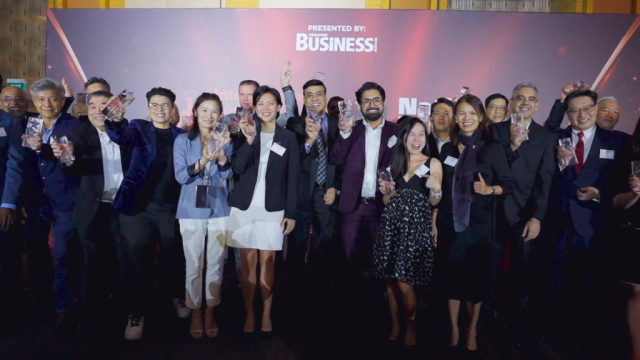
Asian philanthropists now target more strategic giving
In Singapore, individual charity contributions have increased every year since 2006.
According to a release, as philanthropic giving among Asia’s wealthy grows across the region, a shift to a structured and focused approach to charity is also starting to take place. This is one of the key findings of Something’s gotta give: The state of philanthropy in Asia, a new report from the Economist Intelligence Unit, commissioned by HSBC Private Bank. The report is based on various published research and in-depth interviews with academics, consultants and prominent philanthropists from China, Hong Kong, Singapore, Indonesia and the Philippines.
The report shows that a number of leading Asian philanthropists are starting to emphasise innovation, scale and measurable results in the execution of their philanthropy, aiming to make a long-term impact on the region’s social issues.
Though still low relative to the West, philanthropy is rising along with wealth in Asia, now home to more than 3.3 million high net-worth individuals. In Singapore, individual charity contributions, which include philanthropic giving, have increased every year since 2006. China, meanwhile, has seen explosive growth in private foundations, a function of both recent liberalisation of the sector and low public trust in existing charities.
Sudhir Vadaketh, EIU senior editor, Asia, said: "Venerable traditions of charity have existed for a long time in Asia, but the concept of philanthropy as an organised approach to making large financial donations to achieve specific benefits for society is only now really taking off.”
Cynthia D’anjou-Brown, senior adviser, philanthropy and governance for HSBC Private Bank in Asia, said: “Asia’s new generation of philanthropists are starting to change the landscape of giving. Across the region, where there are various approaches to giving – from formal foundation grant-making to market-oriented solutions – philanthropy is evolving into a visionary and strategic endeavour.
“The future of philanthropy will be about individuals and families working beyond their own foundations, galvanising resources and collaborating with multiple stakeholders to achieve long-term and sustainable results for the community."
Other findings of the report include the following:
Humble upbringings and a desire to enact positive change in society are two of the main drivers of philanthropy in Asia today. Many philanthropists in Asia today grew up in a time when the region was still largely poor. For example, Chen Guangbiao, chief executive of recycling company Jiangsu Huangpu Renewable Resources, and one of China’s richest men, remembers his mother sharing food with neighbours and beggars—this left a lasting impression, and is an important motivation for his philanthropy.
Tax incentives, friendlier regulatory climates, and the emergence of role models are all helping to boost philanthropy. Several factors are making Asia more conducive to philanthropy. First, some countries are offering generous tax incentives—in Singapore, for instance, taxpayers can deduct 250% of their charitable giving from their taxable income.
Friendlier regulatory climates in places like China are also leading to a rise in the number of charities. Finally, the emergence of several role models, including Putera Sampoerna in Indonesia and John Gokongwei in the Philippines, is spurring on other would-be philanthropists.
Strategic philanthropy is now making its mark. A number of leading Asian philanthropists are pursuing ‘strategic philanthropy’, which emphasises innovation, scale and measurable results in its execution, and aims to make a long-term impact on social issues. Nellie Fong’s work is representative of this trend: Ms Fong’s organisation,
Lifeline Express, which began as a train-based mobile eye clinic delivering cataract surgeries in rural China, now also trains doctors to perform the surgeries themselves, broadening patients’ access to care throughout the country.
To realise the full potential of Asian philanthropy, new philanthropists must coordinate their efforts with other stakeholders. Given the increasing amount of information available regarding philanthropy, Asian philanthropists today have an opportunity to learn from the mistakes of the past, bypassing the developmental stage of ‘chequebook charity’ and taking up strategic philanthropy right away.
However, they must also resist the entrepreneur’s impulse to go it alone in their philanthropy. By coordinating their efforts with other stakeholders, they can magnify the impact of their time and money. Jaime Augusto Zobel de Ayala, whose Ayala Foundation has mobilised private companies, local governments and civic organizations to connect 3,000 of the Philippines’ 6,350 public high schools to the Internet says “no one enterprise or sector can do it alone”.
Despite challenges ahead, Asian philanthropists have an enormous opportunity to make an impact. Many parts of Asia have experienced or are experiencing cultural, political and social shifts, whereby individual rights are becoming more pronounced. This shift is being catalysed by, among other things, rising incomes, levels of education and technology. In line with that, individual responsibilities are also becoming greater, partly because some governments have been unable to keep pace with rising citizen expectations. The non-profit sector, including philanthropic activities, could fill this void.
Ms D’anjou-Brown points out that in order to realise the full potential of their philanthropic investments, Asia’s wealthy donors will need to embrace a multi-stakeholder approach even as they try to find their ‘niche’ cause, build social capital that empowers communities and lead by example in good governance, transparency and accountability. “This report underscores a powerful truth – philanthropists in Asia can become a key force for social and economic development in the region.”
























 Advertise
Advertise











